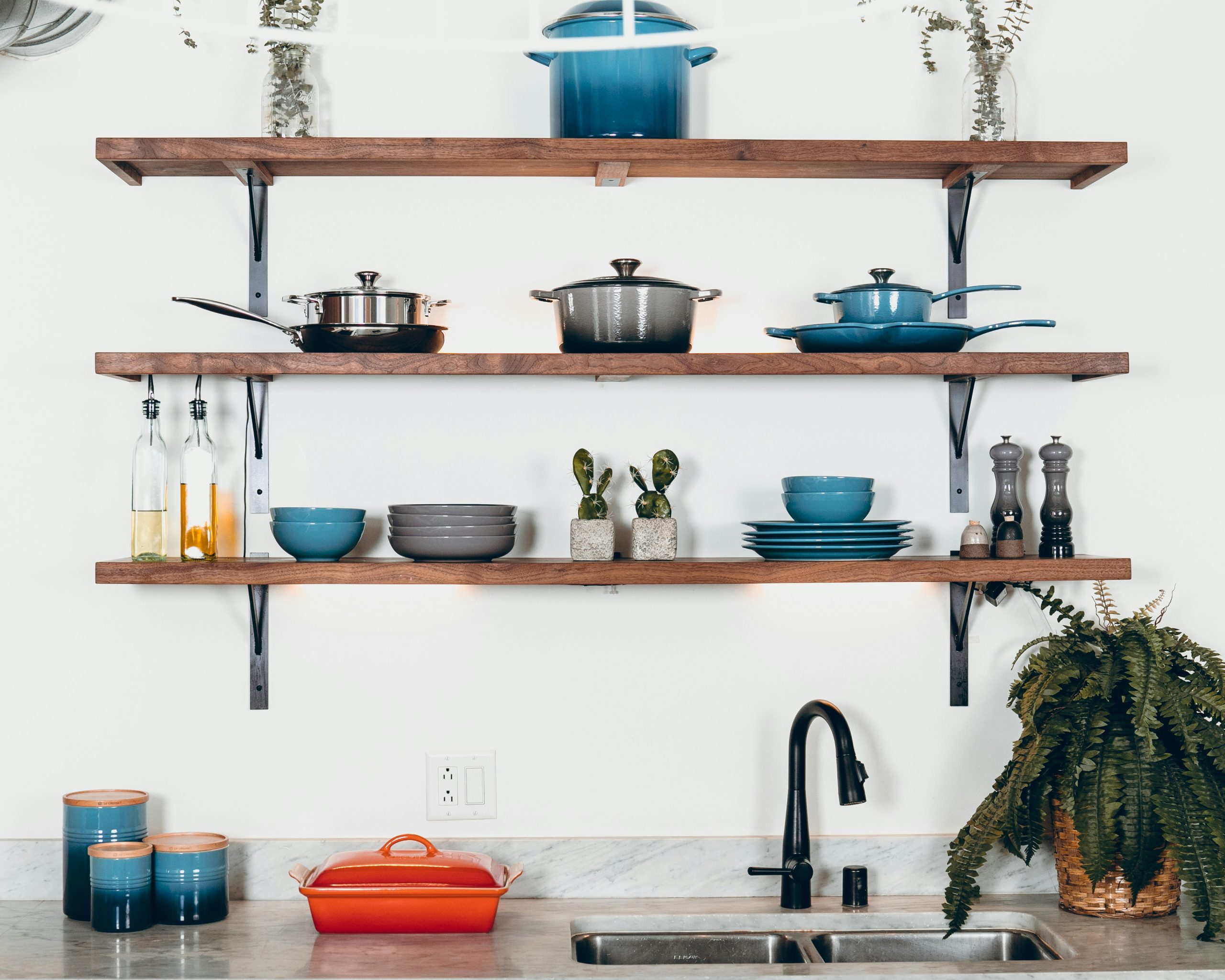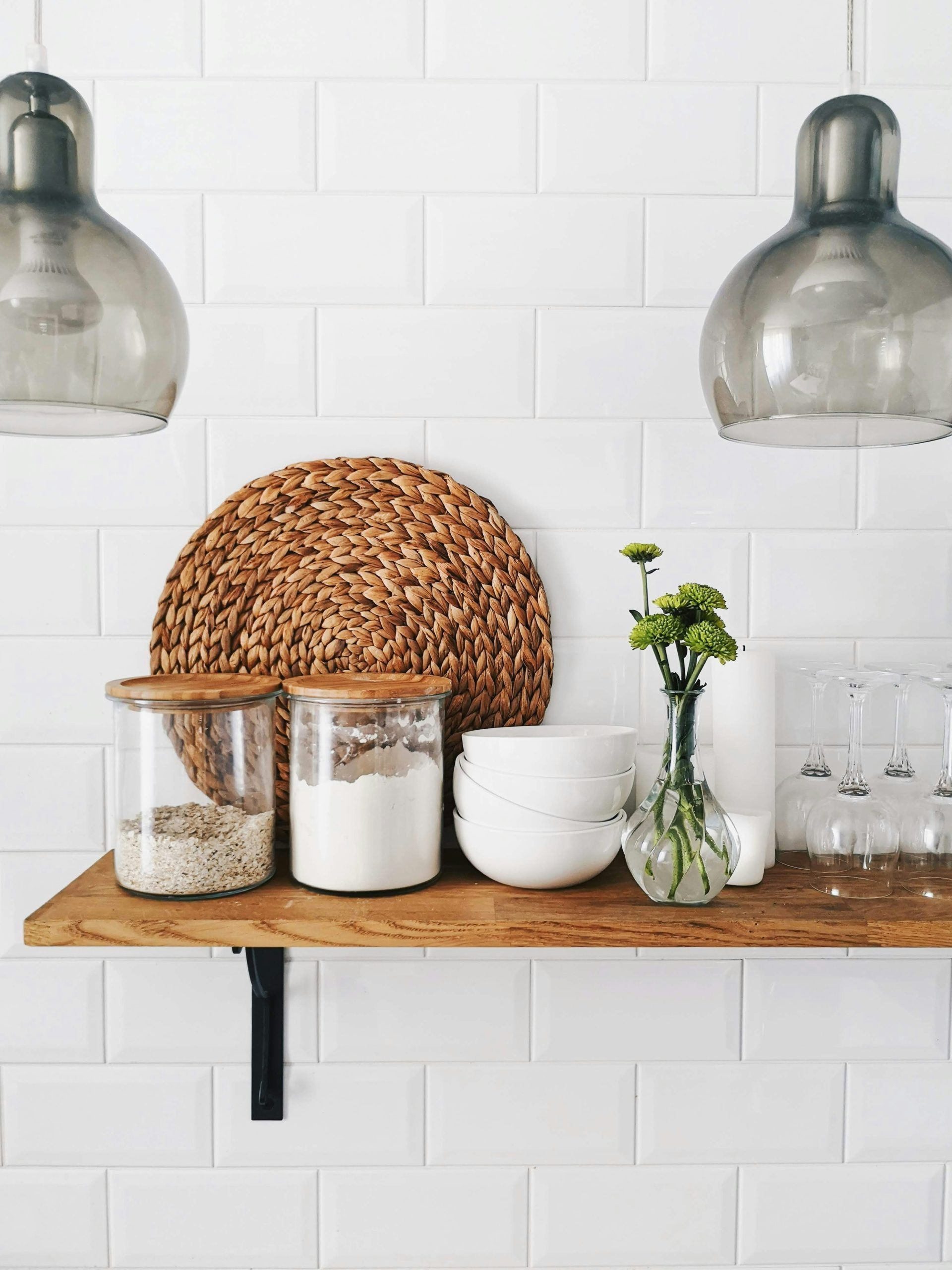Ad Blocker Detected
Our website is made possible by displaying online advertisements to our visitors. Please consider supporting us by disabling your ad blocker.
Have you ever wondered why the pressure cooker isn’t as popular in Western Europe? Despite being a household staple in many other parts of the world, the pressure cooker seems to have never quite caught on in this particular region. In this article, we will explore the possible reasons behind this phenomenon, delving into cultural and historical factors that may have influenced this preference for different cooking techniques. So let’s uncover the mystery behind why the pressure cooker isn’t as popular in Western Europe.
Cultural Differences
Preference for Slow Cooking Methods
One reason why pressure cookers are not popular in Western Europe is because of the cultural preference for slow cooking methods. In many European countries, there is a belief that slow cooking enhances the flavors of the food and creates a more tender and delicious end result. Slow cooking is often associated with traditional and comforting dishes, such as stews and braises. The idea of using a pressure cooker, which speeds up the cooking process drastically, may be seen as a deviation from this tradition and could be met with resistance.
Cultural Emphasis on Fresh Ingredients
Another cultural difference that contributes to the lack of popularity of pressure cookers in Western Europe is the emphasis on fresh ingredients. European cuisine is known for its focus on high-quality, locally sourced ingredients. There is a belief that cooking with fresh ingredients leads to better flavor and overall better taste in the final dish. The high-pressure environment of a pressure cooker can sometimes lead to overcooking or loss of the natural flavors of the ingredients. As a result, many Europeans prefer to use more traditional cooking methods that allow for greater control over the cooking process and highlight the freshness of the ingredients.
Tradition of Cooking Techniques
Western Europe has a rich culinary tradition with centuries-old cooking techniques that have been passed down through generations. There is a sense of pride and heritage associated with these traditional cooking methods, and many people in the region prefer to stick to what they know and are familiar with. Using a pressure cooker, which is a relatively modern invention, may be seen as a departure from these traditional techniques. The cultural value placed on tradition and preserving culinary heritage could be another reason why pressure cookers have not gained widespread popularity in Western Europe.
Perceived Safety Concerns
Historical Accidents and Product Recalls
The perception of safety concerns surrounding pressure cookers can also contribute to their lack of popularity in Western Europe. In the past, there have been incidents and accidents involving pressure cookers, such as explosions or malfunctioning valves. These incidents have created a sense of fear and caution among consumers, making them hesitant to use pressure cookers in their kitchens. Additionally, product recalls related to pressure cookers have also impacted consumer trust in these appliances. The negative associations with safety issues and recalls have likely deterred many Europeans from embracing pressure cooking as a viable cooking method.
Lack of Familiarity with Pressure Cooking
Another factor that plays into the lack of popularity of pressure cookers in Western Europe is the lack of familiarity with this cooking method. Unlike in other parts of the world, such as Asia or North America, where pressure cooking has been a common practice for years, pressure cookers are relatively foreign in European kitchens. Many Europeans have not grown up using pressure cookers or have not had exposure to this cooking technique in their culinary education. This lack of familiarity can make people hesitant to invest in a pressure cooker or experiment with this cooking method.

Availability and Price
Limited Market Presence
One of the reasons why pressure cookers have not gained widespread popularity in Western Europe is the limited market presence of these appliances. While pressure cookers are readily available in some countries, such as the United Kingdom or Germany, they may be harder to find in smaller European markets. Limited availability can make it challenging for consumers to purchase pressure cookers and can contribute to their overall lack of popularity.
Higher Cost Compared to Other Cookware
In addition to limited availability, the higher cost of pressure cookers compared to other cookware can be a barrier to their adoption in Western Europe. Pressure cookers often require a higher upfront investment than traditional pots and pans, which may deter price-conscious consumers. The perceived notion of pressure cookers being a specialized and potentially unnecessary kitchen gadget may also contribute to the reluctance to spend a significant amount of money on these appliances. The higher cost, combined with other factors, can make pressure cookers less accessible to the average consumer in Western Europe.
Alternative Cooking Methods
Stovetop Cooking
One alternative cooking method that is commonly preferred in Western Europe is stovetop cooking. Stovetop cooking allows for greater control over the cooking process and gives chefs the ability to adjust the heat as needed. This method is particularly favored for dishes that require precise temperature control, such as sauces or delicate proteins. Stovetop cooking also allows for the development of flavors over a longer period of time and is often associated with the slow and careful preparation of meals. The preference for stovetop cooking contributes to the limited adoption of pressure cookers in Western Europe.
Oven Cooking
Oven cooking is another alternative method favored in Western Europe. Many traditional European dishes, such as roasts or baked goods, require the use of an oven for the best results. Oven cooking allows for even heat distribution and is favored for dishes that benefit from a longer, slower cooking time. Similar to stovetop cooking, oven cooking is often associated with the traditional and slow preparation of meals. The versatility and familiarity of oven cooking make it a popular choice among European cooks, further reducing the demand for pressure cookers.
Slow Cookers
While not as popular as stovetop or oven cooking, slow cookers have gained some traction in Western Europe as an alternative to pressure cookers. Slow cookers allow for the hands-off cooking of meals over an extended period, resulting in tender and flavorful dishes. The convenience and ease of use of slow cookers have appealed to busy individuals who want to come home to a home-cooked meal without spending hours in the kitchen. Slow cookers also align with the cultural preference for slow cooking methods and the emphasis on fresh ingredients, making them a more popular choice compared to pressure cookers.

Difference in Culinary Habits
Preference for Longer Cooking Times
One significant difference in culinary habits between Western Europe and other regions is the preference for longer cooking times in European cuisine. Slow cooking is often seen as a way to extract maximum flavor and tenderness from ingredients, and Europeans are known for their patience when it comes to food preparation. This preference for longer cooking times is reflected in the traditional dishes of Western Europe, such as coq au vin or boeuf bourguignon, which require hours of slow simmering to develop rich flavors. The reliance on longer cooking times reduces the demand for pressure cookers, which prioritize speed.
Different Food Staples
The culinary habits of Western Europeans also differ in terms of the food staples they use in their dishes. European cuisine often features ingredients such as meats, root vegetables, and legumes, which benefit from slow cooking methods. These ingredients are well-suited for traditional cooking techniques, such as simmering or braising, which allow for the breakdown of tough fibers and the melding of flavors. Pressure cooking is better suited for ingredients that require quick cooking, such as rice, grains, or certain vegetables. The difference in food staples influences the preference for alternative cooking methods over pressure cookers in Western Europe.
Lack of Promotion and Marketing
Less Advertising and Product Awareness
One possible reason for the lack of popularity of pressure cookers in Western Europe is the limited promotion and marketing of these appliances. Unlike in other regions, where pressure cookers are heavily advertised and endorsed by celebrity chefs, their visibility in Western Europe is relatively low. The lack of advertising and product awareness means that many consumers in the region may not be aware of the benefits and capabilities of pressure cookers. Without sufficient promotion and marketing efforts, pressure cookers remain a niche product in Western Europe, hindering their widespread adoption.
Limited Shelf Space in Stores
Another factor that contributes to the lack of popularity of pressure cookers in Western Europe is the limited shelf space dedicated to these appliances in stores. Traditional pots, pans, and other cookware items often take up more prominent display areas, leaving pressure cookers with less visibility. Limited shelf space can make it harder for consumers to come across pressure cookers while shopping and can decrease their overall accessibility. The lack of prominent placement in stores further limits the exposure and awareness of pressure cookers among Western European consumers.

Perception of Bulk Cooking
Preference for Freshly Prepared Meals
Western Europeans have a strong preference for freshly prepared meals, and this preference often clashes with the concept of bulk cooking that pressure cookers offer. While pressure cookers are lauded for their ability to cook large quantities of food quickly, this approach may not align with the desire for freshly cooked meals. Traditional cooking methods in Western Europe prioritize smaller portion sizes and the idea of cooking meals just before they are consumed. The perception of bulk cooking as potentially sacrificing the quality or freshness of the food can deter many Europeans from embracing pressure cookers as a viable cooking option.
Smaller Household Sizes in Western Europe
The smaller household sizes commonly found in Western Europe also contribute to the perception of bulk cooking as less desirable. Compared to other regions where larger households are more prevalent, Western European households tend to be smaller, with fewer family members to feed. This smaller household size reduces the need for cooking large quantities of food at once, further diminishing the appeal of pressure cookers in the region. The cultural norms and lifestyle in Western Europe prioritize individual portions or smaller servings, making pressure cookers less relevant for many consumers.
Cultural Norms and Lifestyle
Emphasis on Work-Life Balance
Work-life balance is highly valued in Western Europe, and this cultural norm can affect the popularity of pressure cookers. Pressure cookers are often associated with quick meal preparation and time-saving benefits. However, in Western Europe, there is a greater emphasis on savoring the cooking process and enjoying the meal preparation as a way to relax and unwind. The idea of using a pressure cooker to expedite meal preparation may run counter to this cultural value of taking time to enjoy the culinary experience. As a result, pressure cookers are not as widely adopted in Western Europe as they are in other regions with different cultural norms.
Less Need for Quick Meal Preparation
The cultural norms and lifestyle in Western Europe also contribute to the lesser need for quick meal preparation. In many European countries, mealtime is seen as an occasion to gather and savor the food, rather than rushing through a quick meal. There is often more time dedicated to meal preparation, and the idea of using a pressure cooker to speed up the process may not align with this slower pace of life. The cultural tendency to prioritize quality over convenience reduces the demand for pressure cookers, which are primarily marketed as time-saving appliances.
Preference for Traditional Cookware
Familiarity and Comfort with Traditional Pots and Pans
Western Europeans have a strong attachment to their traditional cookware, such as cast iron pans or copper pots. These traditional pots and pans have been used for generations and are often seen as essential tools in the kitchen. Many Europeans have developed a familiarity and comfort with these traditional cookware options, making it harder for pressure cookers to establish a place in their kitchens. The preference for using familiar tools contributes to the lower adoption rates of pressure cookers in Western Europe.
Influence of Culinary Tradition
The influence of culinary tradition also plays a significant role in the preference for traditional cookware in Western Europe. Europeans take pride in their culinary heritage and celebrate the traditional dishes and cooking techniques that have been passed down through generations. The choice to embrace these traditional cooking methods extends to the cookware used as well. Traditional pots and pans that have stood the test of time become symbols of cultural identity and pride. The emphasis placed on culinary tradition makes it challenging for pressure cookers, as a relatively new kitchen appliance, to compete with the beloved and deeply entrenched traditional cookware in Western Europe.
Regional Culinary Influences
Diverse Culinary Traditions
Western Europe is home to diverse culinary traditions, with each country and even regions within countries having their own unique dishes and cooking techniques. The wide array of culinary influences means that pressure cooking may not have a prominent place in the traditional recipes of many European cuisines. Regional dishes often rely on specific cooking methods and equipment that have been part of the culinary fabric for centuries. Without a significant presence in traditional recipes, pressure cooking struggles to establish itself as an essential tool in the Western European kitchen.
Lack of Pressure Cooking in Regional Recipes
Building on the diverse culinary traditions, pressure cooking is simply not a technique that is commonly found in many traditional regional recipes in Western Europe. While pressure cookers have become a staple in some cuisines, such as Indian or Chinese, they have not been integrated into the traditional dishes of Western Europe to the same extent. The absence of pressure cooking in regional recipes means that there is less cultural familiarity and demand for pressure cookers among Western European consumers. The lack of integration in traditional recipes hinders the popularity of pressure cookers in the region.
In conclusion, there are various factors that contribute to the lack of popularity of pressure cookers in Western Europe. Cultural differences, including the preference for slow cooking methods and emphasis on fresh ingredients, play a significant role. Perceived safety concerns, limited availability, and higher cost also contribute to the lower adoption rates. The presence of alternative cooking methods, such as stovetop cooking or slow cookers, further reduces the demand for pressure cookers. Additionally, difference in culinary habits, lack of promotion and marketing, perception of bulk cooking, cultural norms and lifestyle, preference for traditional cookware, and regional culinary influences all play a part in explaining the limited popularity of pressure cookers in Western Europe.

